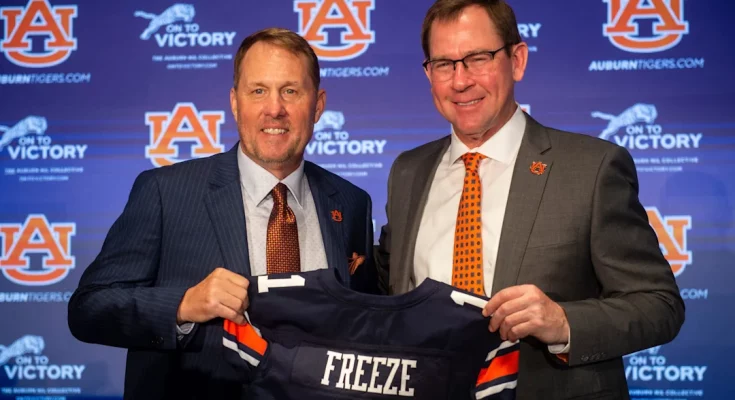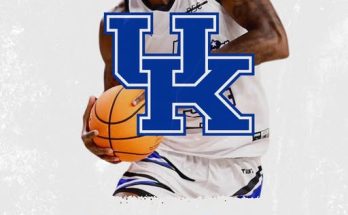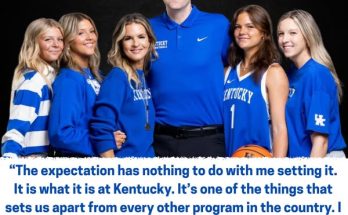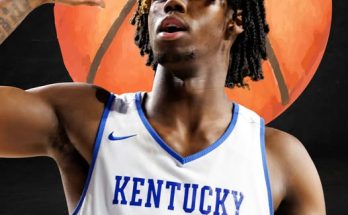Auburn’s athletic director has broken his silence amidst the swirling criticism surrounding head football coach Hugh Freeze, defending the embattled leader as the Tigers grapple with recruiting frustrations and public skepticism. In a landscape where every commitment—or lack thereof—is scrutinized in real time on social media, the Tigers’ recruiting stagnation has stirred up concern and even outrage among segments of the Auburn fanbase. Yet, rather than offer vague platitudes or shifting blame, Auburn’s administration is standing firm behind Freeze, viewing the recent difficulties not as a failure of leadership, but as a predictable bump in the road during what they consider to be a long-term rebuild.
Hugh Freeze was hired with considerable fanfare in late 2022, arriving with both baggage and bona fides. The coach had once guided Ole Miss to a top-10 finish and handed Nick Saban back-to-back losses—an accomplishment few have claimed. Yet his tenure in Oxford was undone by a cascade of scandals, including NCAA violations and personal misconduct, that ultimately led to his resignation. After redeeming himself in a successful stint at Liberty, Freeze was offered a shot at redemption in the SEC, with Auburn betting that his offensive acumen and recruiting savvy could revive a program that had become increasingly stagnant since the latter years of Gus Malzahn and the unsuccessful Bryan Harsin experiment.
The early returns were mixed, but not alarming. Freeze’s first full recruiting class included some solid pickups and showed flashes of his famed ability to sway top talent. Yet as the 2025 cycle progressed, warning signs started to accumulate. Auburn missed out on several high-profile targets, including in-state prospects who opted to commit elsewhere, in some cases to bitter rival Alabama or Georgia. The momentum that Freeze seemed to build last winter began to evaporate in the spring and summer. With each lost battle on the recruiting trail, questions intensified about whether Auburn was falling behind not just its traditional rivals, but even resurgent programs like Florida State, LSU, and Texas A\&M.
Social media only amplified the angst. Fans flooded message boards, podcasts, and X (formerly Twitter) with concerns about the direction of the program. The criticism wasn’t limited to Freeze’s recruiting either. Some pointed to a 6–7 finish in 2023 as a warning sign, even if that season was widely viewed as transitional. Others questioned his in-game decision-making or raised doubts about whether his offensive system could still thrive in the modern SEC. As tension mounted, whispers began to surface in media circles: Was Freeze losing his grip on the locker room? Had Auburn miscalculated in hiring him? Would he even last through the 2025 season if the Tigers faltered again?
This is the environment in which Auburn athletic director John Cohen made the rare decision to step into the public fray. Known for being methodical and measured, Cohen has largely allowed his coaches to speak for themselves. But with the temperature rising around Freeze and recruiting struggles becoming a dominant topic on talk radio and fan blogs, he decided it was time to offer clarity and reassurance.
In a recent interview with a local news outlet, Cohen unequivocally backed Freeze, stating that the university remains confident in his vision and the direction of the program. He emphasized that rebuilding a recruiting pipeline takes more than a few months and that Freeze inherited a situation with deep-rooted challenges. The Tigers had lagged behind in NIL organization, struggled with staff turnover, and lost significant ground in relationships with high school coaches across the Southeast during the previous regime. According to Cohen, Freeze is not only addressing those issues, but doing so with urgency and transparency.
One of the key points Cohen made was that recruiting is no longer just about relationships or on-field performance—it’s increasingly about infrastructure, including NIL collectives, branding, and institutional alignment. While Auburn has made strides in recent months, especially in enhancing its NIL presence and improving facilities, Cohen noted that the program is still catching up to schools that were more proactive early on. “You don’t just flip a switch and instantly become a top-three recruiter in the country,” he said. “It’s a process. And we hired Hugh Freeze because we believe he can execute that process as well as anyone.”
Cohen’s defense of Freeze didn’t end there. He highlighted the coach’s tireless work ethic, his improved relationship with local high school coaches, and his willingness to adapt in a rapidly changing recruiting landscape. Freeze, for example, has reportedly revamped his recruiting board, reshuffled responsibilities among assistants, and taken a more aggressive stance in NIL negotiations with key targets. Though the results may not yet be visible in the rankings, Cohen asserted that the foundational work Freeze is doing now will pay dividends in the next two cycles.
Inside the program, sources confirm that Freeze still enjoys strong support from players and staff. Multiple assistant coaches have reiterated privately that they see no panic from Freeze—only resolve. “He knows the heat is on,” one assistant said, “but he’s been here before. He thrives in adversity.” Players, too, have voiced support, praising Freeze’s honesty and accountability in team meetings. Several upperclassmen reportedly met with Freeze earlier this month to discuss concerns about leadership and direction, and those discussions were described as “constructive” and “galvanizing.”
Still, support from inside the building and the athletic director’s office may not be enough to quell the anxiety of a fanbase that expects tangible progress. Auburn is a proud program with a rich history, and patience is not often its strong suit. Freeze faces a pivotal 2025 season—not just to improve his win-loss record, but to generate momentum that will reassure recruits and energize donors. The Tigers’ early-season schedule is unforgiving, with matchups against Georgia, LSU, and Texas A\&M in the first six weeks. A poor start could reignite the firestorm. But if Freeze can engineer a few early upsets and show that the on-field product is evolving, the narrative could shift quickly.
It’s worth noting that Freeze’s recruiting efforts have not been without victories. Auburn landed a pair of blue-chip offensive linemen in June, flipped a four-star wide receiver from Mississippi State, and is still considered a finalist for several top defensive backs. The Tigers are also heavily involved in the transfer portal, which Freeze has used effectively in the past. Some within the program believe that Freeze’s recruiting strategy is more portal-dependent by design, as he seeks to rapidly upgrade talent while still reshaping the high school pipeline. That approach comes with risks—it’s harder to build culture and continuity—but it can pay immediate dividends if the right players are brought in.
Cohen appears to be aware of the fine line Freeze is walking. His public comments suggest not just support, but a strategic alignment between athletic department and coaching staff. Auburn is, for now, all-in on Freeze. But Cohen also emphasized accountability, stating that expectations remain high and that “nobody in this program is satisfied with moral victories or excuses.” That dual message—support coupled with urgency—may be the most honest reflection of where things stand. Freeze isn’t on the hot seat, but the thermostat is not turned off either.
The broader context of Auburn’s recruiting challenges also includes the realities of doing business in the SEC, where every top-tier program has resources, tradition, and a relentless drive to win. Alabama continues to recruit at a high level under Kalen DeBoer. Georgia has become a juggernaut under Kirby Smart. LSU is resurgent, and even programs like Missouri and Ole Miss have elevated their recruiting operations. Simply put, it’s harder than ever to gain ground in this conference. Freeze may be experiencing what many coaches have found: being good is no longer enough—you have to be exceptional, strategic, and aggressive at all times.
Auburn boosters, too, are playing a role in the evolving dynamics. There have been renewed efforts to unify previously fragmented NIL collectives and increase donor participation. Freeze has reportedly met multiple times with key financial stakeholders to outline his vision and emphasize where support is most urgently needed. According to insiders, those meetings have been productive, and new funding initiatives are expected to launch later this fall. It remains to be seen whether these efforts will translate into tangible recruiting gains, but they demonstrate a program trying to align its pieces behind a common goal.
Freeze, for his part, has not publicly lashed out at critics or made excuses for the recent recruiting woes. Instead, he’s doubled down on messaging about culture, long-term growth, and the importance of staying the course. That restraint may not win him any Twitter debates, but it signals a coach focused on substance rather than optics. His weekly media appearances have remained calm and measured, even as reporters prod him about missed targets and wavering commits.
If Auburn turns the corner in the coming months, much of the current anxiety will likely be forgotten. Wins have a way of erasing doubts. But until then, the Tigers are in a precarious spot—trying to build something sustainable while navigating the impatient reality of college football in 2025. Freeze’s margin for error is thin, but so is everyone else’s in the SEC. What separates successful programs from stagnant ones is not just talent acquisition, but belief and cohesion. That’s what John Cohen is trying to protect by publicly defending his coach.
Whether the gamble pays off will depend on Freeze’s ability to deliver both on and off the field. For now, Auburn is sticking to its plan, betting that the foundation being laid behind the scenes will ultimately silence the noise and restore the Tigers to their rightful place among the SEC elite.



